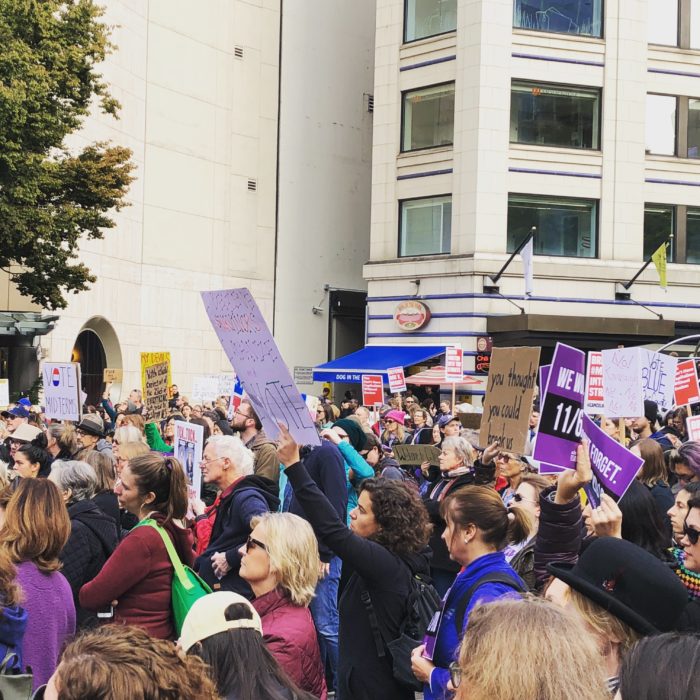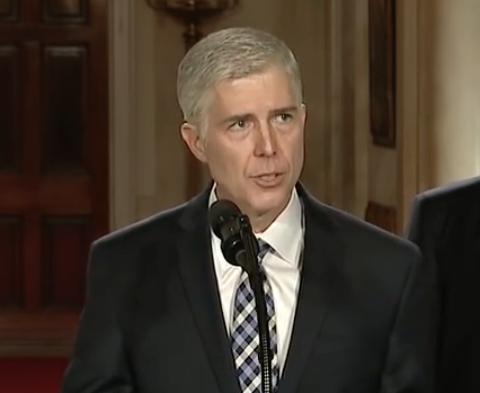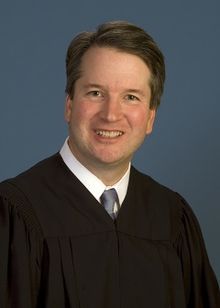The cases concern everything from firing people who are LGBTQ, to abortion restrictions that disproportionately affect low-income women, to deportations, to the scope of the Second Amendment, writes Marjorie Cohn.

U.S. Supreme Court building. (Joe Ravi, CC BY-SA 3.0, via Wikimedia Commons)
This term, the Supreme Court will decide whether people can be fired for being transgender or LGBQ, if people brought to the U.S. as children can be deported, whether states can impose restrictions on abortion that disproportionately harm poor women, how firm the separation between church and state is, the scope of the Second Amendment and whether criminal defendants can be convicted by less-than-unanimous juries.
Millions of people will be impacted by the results of these cases. “The court’s decisions will affect 800,000 ‘dreamers,’ in the DACA case…millions of LGBTQ workers in deciding whether federal discrimination laws protect on the basis of gender identity and sexual orientation, and ‘half the country’ in the abortion case,” The Washington Post’s Robert Barnes wrote, summarizing an interview with ACLU legal director David Cole.
These are some of the cases the Court will decide by the end of June 2020:
Dreamers’ Rights
President Barack Obama instituted Deferred Action for Childhood Arrivals (DACA) in 2012 to protect from deportation people who arrived in the United States as children. They are known as “Dreamers,” a reference to the Development, Relief and Education for Alien Minors (DREAM) Act, which Congress has failed to pass for nearly two decades. President Donald Trump rescinded DACA in 2017, in furtherance of his anti-immigrant, anti-Obama agenda. The Trump administration claims that Obama’s establishment of DACA was an “unconstitutional exercise of authority.”
In Department of Homeland Security v. University of California, the plaintiffs — the University of California and a number of states and DACA recipients — argue that Trump’s rescission of DACA was illegal. Trump argues that his decision to rescind DACA is not reviewable by the courts. The Ninth U.S. Circuit Court of Appeals disagreed with Trump, saying his rescission of DACA was based “solely on a misconceived view of the law.” The appellate court found meritorious plaintiffs’ claims that the rescission was arbitrary and capricious and violated equal protection, due process and the Administrative Procedures Act.
>>Please Donate to Consortium News’ Fall Fund Drive<<
The High Court has recently come to different conclusions in two immigration-related cases. In a 5-4 decision, the Court affirmed Trump’s Muslim Ban, holding that the president has broad authority over national security. But Chief Justice John Roberts joined the four liberal justices on the Court to prevent Trump from adding a citizenship question to the census, calling the administration’s stated reasons “contrived.”
Oral arguments in the case are set for Nov. 12.

Protesters outside U.S. Supreme Court call for the reversal of President Donald Trump’s travel ban on refugees and immigrants from several Middle East countries, Jan. 31, 2017. (Lorie Shaull/Flickr)
LGBTQ Rights
On Oct. 8, the Court heard oral arguments in three cases that test whether Title VII of the 1964 Civil Rights Act, which forbids discrimination “because of … sex,” protects transgender and LGBQ employees from being fired. Bostock v. Clayton County and Altitude Express v. Zarda were brought by men fired for being gay. Harris Funeral Homes v. EEOC was filed by a woman fired for being transgender.
These are the first cases involving LGBTQ rights to reach the Court since Justice Anthony Kennedy retired. Kennedy wrote the opinions in four cases protecting gay rights and provided the fifth vote to uphold the right to same-sex marriage.
Three U.S. appeals courts and 22 states prohibit the firing of gay and transgender employees. It seems like a no-brainer. “Firing someone because they identify with a sex different from their assigned sex at birth is obviously firing them because of their sex,” ACLU lawyer Gabriel Arkles wrote for Truthout. “And firing someone because they are attracted to people of the same sex is also obviously because of sex.”
Ironically, Justice Neil Gorsuch may cast the deciding vote. During argument, he conceded that the text of Title VII was “close.” But Gorsuch wondered whether the justices should consider the “massive social upheaval” if the Court ruled for the plaintiffs.
Gorsuch will hopefully channel his mentor, Justice Antonin Scalia, who authored the 1998 opinion for a unanimous court which held that Title VII covers harassment between members of the same sex. Scalia wrote that although Congress may not have anticipated such harassment when it wrote the law in 1964, “statutory prohibitions often go beyond the principal evil to cover reasonably comparable evils, and it is ultimately the provisions of our laws rather than the principal concerns of our legislators by which we are governed.”
Abortion Rights

Protest against the Supreme Court confirmation of Brett Kavanaugh, Seattle, October 2018. (Ryan1783, CC BY-SA 4.0, Wikimedia Commons)
The Court will decide a case challenging a Louisiana law which, if upheld, would permit only one doctor in one clinic in the state to perform abortions. This law requires that in order to perform abortions, doctors must have admitting privileges at a local hospital. That restriction, plaintiffs in June Medical Services v. Gee argue, imposes an “undue burden” on the right to abortion forbidden by the 1992 case of Planned Parenthood v. Casey because it restricts access to abortion without protecting the health of women.
In June Medical Services, the district court made extensive factual findings that closing the other Louisiana clinics would impose a heavy burden on low-income women. It found that those who pursue abortions are disproportionately poor and closure of the clinics would force them to travel long distances.
Roberts joined the four liberal justices to halt Louisiana’s law from going into effect during the pendency of the appeal. That was a curious move, since, in 2016, Roberts had dissented from the majority decision in Whole Women’s Health v. Hellerstedt that held unconstitutional a Texas law nearly identical to the one in Louisiana.
June Medical Services will test Roberts’s claimed devotion to upholding precedent, as the Court could use it to overrule Whole Women’s Health. In the three years since Whole Women’s Health was decided, Justice Brett Kavanaugh replaced Kennedy. “It will reveal probably more than any case this term this emerging role of Roberts as the swing vote,” George Washington University law professor Jonathan Turley told The Washington Post.
Right to a Unanimous Jury Verdict
In 2016, Evangelisto Ramos was found guilty in Louisiana of second-degree murder after 10 of the 12 jurors voted to convict him. He was sentenced to life in prison at hard labor with no possibility of parole. Ramos contends in Ramos v. Louisiana that he had the constitutional right to a unanimous jury verdict.

U.S. Supreme Court nominee Neil Gorsuch speaking at the announcement of his selection on Jan. 31, 2017. (Screen shot from Whitehouse.gov)
All states except Louisiana and Oregon require that jury verdicts in criminal cases be unanimous. Although Louisiana changed its law to require unanimity in felony trials, it only applies to crimes committed on or after Jan. 1, 2019.
In 1972, the Court held in Apodaca v. Oregon that the Sixth Amendment right to trial by an impartial jury requires that juries in federal criminal cases be unanimous. But the Court did not find that defendants in state cases are entitled to a unanimous jury.
The Court has used the incorporation doctrine to hold that most of the protections of the Bill of Rights — the first 10 amendments to the Constitution — apply to the states through the Due Process Clause of the 14th Amendment.
Indeed, last term, a unanimous Court held that the Eighth Amendment prohibition on excessive fines applies in state courts via the 14th Amendment’s Due Process Clause, which forbids the states from depriving a person of “life, liberty or property, without due process of law.”
During the Oct. 7 oral argument in Ramos, Kavanaugh asked, “Do the racial origins of this rule have an impact on how we think about stare decisis [following precedent] in this case?”
Louisiana adopted its non-unanimity rule to make it easier for white jurors to convict black defendants after it was forced to allow black Americans to serve on juries. The NAACP Legal Defense and Education Fund noted in its amicus brief in support of Ramos, “Up until 2018, when Louisianans voted to remove the non-unanimous jury provision from their constitution, black defendants were more likely to be convicted by non-unanimous juries, and black jurors were more likely than white jurors to be in the dissent.”
Scope of Second Amendment

Supreme Court Justice Brett Kavanaugh.
For the first time in over a decade, the Court will hear a case involving the scope of the Second Amendment’s right to bear arms. The Court will decide in New York State Rifle & Pistol Association. v. City of New York whether New York City’s prohibition against transporting a licensed, unloaded and locked handgun to a home or shooting range outside the city limits violates the Second Amendment, the commerce clause and the constitutional right to travel.
Since the five right-wing justices favor an expansive interpretation of the Second Amendment, it would seem the result in this case is preordained. But after the Court agreed to hear the case, New York City amended the regulation to allow licensed gun owners to transport handguns to their second homes or shooting ranges outside of city limits.
New York City’s changed regulation should have made the case moot. The justices, however, could use it as a vehicle to establish a broad interpretation of the Second Amendment.
“The court is going to have to decide this question of mootness against the backdrop of several recent highly-publicized episodes of gun violence and heated debate between the two parties about solutions to gun violence,” Irv Gornstein, executive director of the Supreme Court Institute at Georgetown, told The New York Times. “For some, this is a reason to dig in and plunge ahead to decide the case. For others, sitting this one out may be an inviting prospect.”
On Dec. 2, the high court will hear arguments in this case.
Church-State Separation
The First Amendment says, “Congress shall make no law respecting an establishment of religion, or prohibiting the free exercise thereof.” The Court will decide in Espinoza v. Montana whether a state that gives grants and scholarships to students in private schools must also provide them to students in church schools.
Montana’s constitution, like that of many states, forbids giving tax money to churches. The Montana Department of Revenue prevented a state scholarship fund from providing money to students who attended church-affiliated schools.
This case will test the limits of Trinity Lutheran Church v. Comer, the 2017 decision in which the Court held that Missouri could not prevent religious schools from receiving funds to replace pea gravel under playground equipment with a rubber surface. The Court found that refusing to provide the church with an otherwise available public benefit on account of its religious status violated the Free Exercise Clause of the First Amendment.
Other Possible Cases
The Court will continue to accept cases as the term proceeds. Here are some issues the Court may agree to consider.
As Trump obstructs the impeachment inquiry, we will see cases that measure the constitutional impeachment process against unfettered assertions of executive power.
Trump has made unilateral changes to asylum and immigration law, which is within the purview of Congress. Many of those changes have been challenged and will probably be reviewed by the high court. And a federal district judge granted an injunction to halt Trump’s diversion of military funds to the construction of his border wall.
Whether Trump must turn over his tax returns and whether his family’s financial transactions with foreign governments violate the Emoluments Clause will also likely be decided by the Court. A federal district judge ordered Trump to provide his tax returns to New York state prosecutors, and a panel of the D.C. Circuit Court of Appeals ruled that Congress has the right to see Trump’s financial records.
The Court may also determine whether cities can prevent homeless people from camping in public places or sleeping on sidewalks. The Ninth Circuit ruled that if no alternative indoor sleeping areas are available, such restrictions would constitute cruel and unusual punishment in violation of the Eighth Amendment.
Two cases that pit religious rights against civil rights might be reviewed by the Court. One involves a Christian florist charged with violation of Washington’s civil rights law after refusing to sell flowers for a same-sex wedding. The other is an appeal by Catholic Social Services, which was excluded from the foster care system for refusing to place foster children with same-sex couples.
And the high court may have the opportunity to gut the Voting Rights Act once and for all if the Fifth U.S. Circuit Court of Appeals weakens the standard for finding discrimination in a case pending before it.
As the Court moves increasingly to the right with the recent additions of Gorsuch and Kavanaugh, we can expect the continued evisceration of civil rights and civil liberties. The Court has failed to protect the right to vote by declining to strike down partisan gerrymandering; refused to find that Trump’s Muslim Ban violated the First Amendment’s Establishment Clause; and held that, notwithstanding the Due Process Clause, immigrants who have been released from criminal custody can be detained without a hearing, even when arrested by immigration agents years after their release. The importance of Justice Ruth Bader Ginsburg’s continued vitality cannot be underestimated.
Marjorie Cohn is professor emerita at Thomas Jefferson School of Law, former president of the National Lawyers Guild, deputy secretary general of the International Association of Democratic Lawyers and a member of the advisory board of Veterans for Peace. Her most recent book is “Drones and Targeted Killing: Legal, Moral, and Geopolitical Issues.”
This article is from Truthout and reprinted with permission.
Before commenting please read Robert Parry’s Comment Policy. Allegations unsupported by facts, gross or misleading factual errors and ad hominem attacks, and abusive or rude language toward other commenters or our writers will be removed. If your comment does not immediately appear, please be patient as it is manually reviewed. For security reasons, please refrain from inserting links in your comments.
>>Please Donate to Consortium News’ Fall Fund Drive<<

Both Gorsuch and Kavanaugh have teen daughters. I wonder if that fact will affect their decisions on abortion rights. Or, will they assume that negatives only happen to the children of others.
Me thinks the “Wild West” isn’t just the West…
If the court decides that companies can discriminate against LGBT then this country will officially become a banana republic. The Supreme Court gave them the right to get married and gave them the rest of the rights that they had been denied and for them to then let companies discriminate against goes against that ruling.
One more point is that Obama and the democrats had many options to force McConnell’s vote for Garland. They could have ground congress to a halt by not participating in anything until he brought him up for a vote. During the years the republicans were the minority party we saw them filibuster and place secret holds on any legislation that they didn’t want passed. If they could do that then why couldn’t democrats do it too? One reason is that democrats usually want the same things republicans do, but they have to pretend otherwise.
Obama was either the weakest president in history or he was working with the republicans all the way. I’m going for the latter.
Right. One of Obama’s weak-kneed decisions was not to escort Garland up to the Court and dare anyone to do something about it.
The EXTREME bend to the Right in America occurred after the shocking, concussive / vulgar / 2008 election (and re-election) of the unknown Black (American) candidate Barack Obama. …
A mania for “REAL AMERICANS” was propagated by a One Woman Force named SARAH PALIN, who’d been Arrogated, Appropriated (Chosen) by an ASSOCIATION of “Evangelical”/ “Fundamentalist”/ “Christians” to be John McCain’s ‘running mate’ in the 2008 Presidential Election. (McCain did not approve this… .)
The Right-Wing Mantra for “REAL AMERICANS” became the Forceful Wind that incited/animated the Congressional “Freedom Caucus” – a powerful rightwing funded (KOCH) CONGRESSIONAL OPPOSITION FORCE THAT HELD HANDS TOGETHER FUNDAMENTALLY AGAINST ALL CONGRESSIONAL APPROVAL OF THE ELECTED PRESIDENT’S POLITICAL POLICIES AND-OR PROPOSITIONS/CHOICES,etc. etc. etc.
What existed was; The elected POTUS of the United States (BY NATIONAL VOTE)
As opposed to by a Congress of RIGHT WING OBSTRUCTIONIST, HOLDING HANDS WITH “EVANGELICAL CHRISTIANS”
as if “priest’s and scribes” standing for the Defamation of the Nationally Elected POTUS. …
What civil rights?
The Federal Government can declare a “Federal Protection Area” anywhere they want and suspend anyone’s rights whenever they choose to.
I had this very experience in Denver in 2008, under Obama, who also gave the executive office the power to kill U.S. citizens with the signing of a simple decree, which he exercised.
The United States has been under “Emergency Powers” since the morning of September 11, 2001. Bush, Obama and Trump have all maintained this status continuously and Congress has NEVER reviewed it even once.
Why is that?
The power of the Unitary Executive is complete. We have no Constitution (see Continuity of Government) and we now have a king.
[FYI – The Continuity of Government program is hidden within the bowels of the Department of Homeland Security (absorbed when FEMA was subsumed by DHS).]
2/3 of the US population lives within 100 miles of the border, where constitutional protects are “relaxed”.
This has been explained by the ACLU.
The democrats are culpable as well.